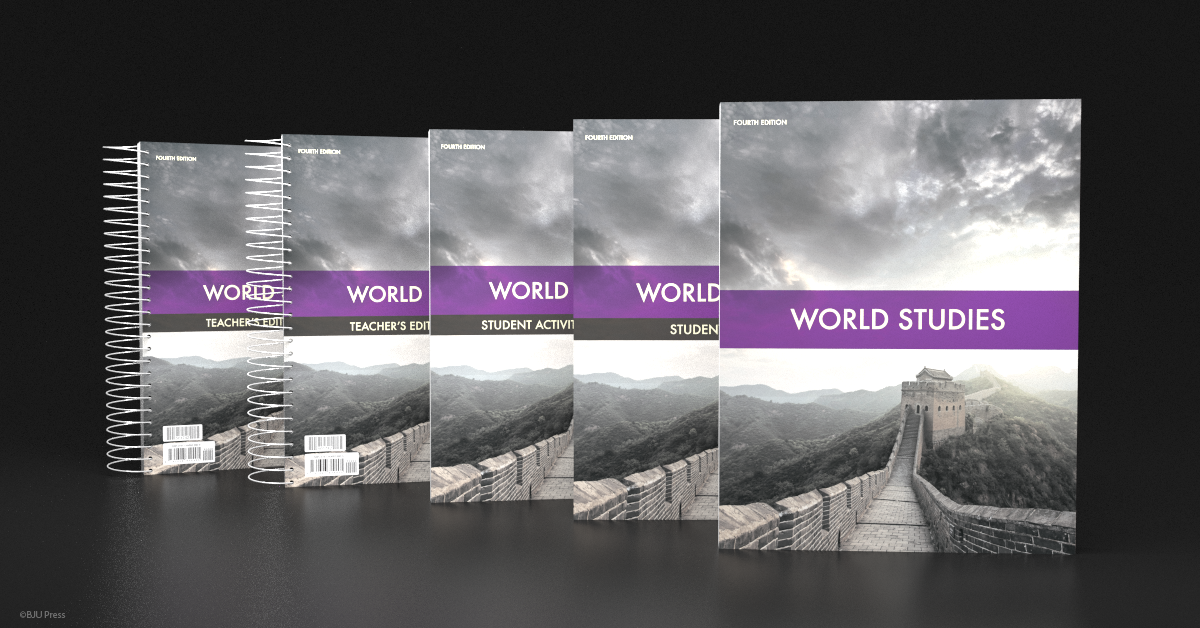
Personally, I love history. It was my favorite subject when I was homeschooled. That’s why I’m so excited about our new seventh-grade World Studies book for 2017. This history book is gorgeous and is written in an engaging narrative style. But most importantly, it treats the subject from a biblical worldview.
What’s Covered
World Studies completes what our Heritage Studies 6 (world history textbook) began. After catching students up on ancient history, it covers the Middle Ages through the modern period. It focuses on the contrasting cultures, economics, and governments of major civilizations during those time periods.
This book tells the fascinating tale of the nations from a biblical worldview. Students learn to think biblically about justice, power, citizenship, and the environment as they watch the peoples of the world grapple with these same issues.
For example, your student will learn about the Spanish conquest and colonization of Latin America. This narrative is riddled with abuse of power and failures of justice such as the denial of citizenship to Creoles. On page 136, students are challenged to apply Scripture in evaluating Spain’s treatment of Creoles. So your homeschool student will not only learn about the stuff of world history, but he will also learn to think correctly about world history.
How It’s Covered
The narrative text carries the book. Throughout the book, engaging photographs, maps, and timelines help to tell the story. The margins include guiding questions and definitions to lead the reader to identify key ideas. And sidebars, especially the ones called “Historical Perspectives,” help students develop critical thinking skills from a biblical worldview.
The text is engaging, the layout is gorgeous, the perspective is biblical. I hope you’ll take a look at a sample of the World Studies Student Text by visiting the product page and clicking on the “Look Inside the Book” icon. I’ve also recorded an overview video of this new textbook for our BJU Press Homeschool YouTube channel. Take a look below.


